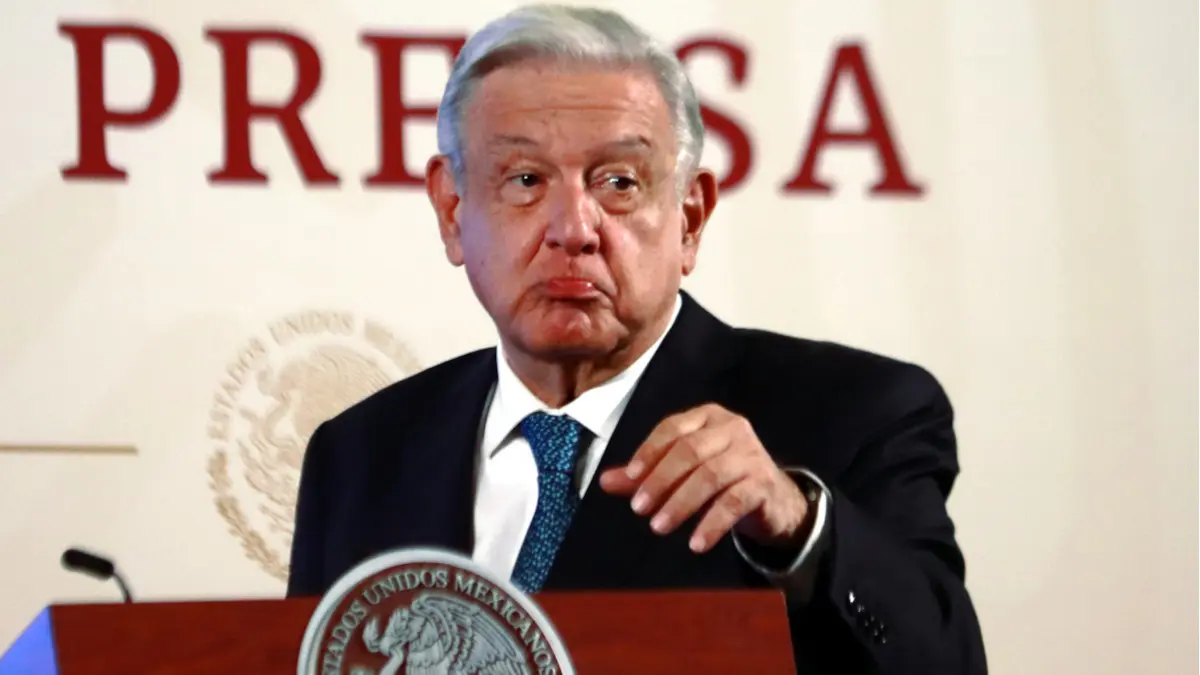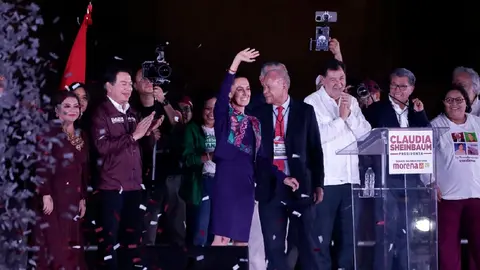AMLO and his poisoned inheritance to Sheinbaum

Her intention was to try to gain time and arrive at her inauguration on 1 October without the reform having been approved, and then proceed to modify some of the key chapters, especially those that are causing the silent stampede of more than a few Mexican businessmen and the distrust of the United States and Canada, her partners in the North American Free Trade Agreement (NAFTA).
AMLO, the acronym by which the still president of Mexico is known, has thus achieved the main objective of his mandate: to subjugate the judiciary, which will henceforth become practically an appendage of the executive.
The crux of the reform is that judges, including those of the Supreme Court, will be elected by popular vote from a list of candidates proposed equally by the executive, legislative and judicial branches. It goes without saying, in view of the majorities that are formed in the two legislative chambers, that the judges who aspire to impart justice will have to enjoy the sympathy and backing of the president of the nation, along with that of their party's deputies. In fact, if the reform has gone ahead now, it is because of the electoral victories won by Morena (Movimiento para la Regeneración Nacional), the party of AMLO and Sheinbaum.
Examinations and competitions of merit and ability, hitherto essential to aspire to be a member of the Supreme Court of Justice, will also be abolished. The number of magistrates-presidents (called ministers) will also be reduced from eleven to nine, as well as reducing their maximum tenure from fifteen to twelve years.
The Federal Judiciary Council, the counterpart of Spain's CGPJ, will also be abolished. In charge of administering and supervising the work and conduct of judicial officials, it will be replaced by a Court of Judicial Discipline, with the power to refer criminal cases it deems appropriate to the Attorney General's Office (Fiscalía General) as well as to initiate impeachment proceedings against judges themselves before the Chamber of Deputies.
Another essential point of the reform is the installation of so-called ‘faceless judges’, i.e. anonymous magistrates in order to preserve their identity and, therefore, their security in proceedings against organised crime. This point, which, when expressed in this way, could attract unanimous consensus, is, however, severely criticised, among other organisations, by the United Nations Office for Human Rights itself, which considers that such anonymity ‘prevents the suitability and professional competence of the judges from being known’.
After AMLO obtained the vote in the Senate of PAN deputy Miguel Ángel Yunes, the decisive vote to reach the two-thirds required by the Constitution, the Mexican president was proud to leave ready this radical transformation of the judiciary, which López Obrador has not tired of accusing of serving the opposition and acting for political interests.
His tiresome insistence that the judiciary was ‘rotten’, almost the same accusation he has levelled at journalists and media outlets that do not obey him, has paved the way for him to present this reform as a pillar of his alleged task of regenerating the country. The strong protests that followed the Senate's 86-41 vote in favour of the reform were dismissed by the president with no sign of dissent from his imminent successor.
During his six years in office, AMLO has ignored calls from judges to provide the judicial apparatus with more means to improve the increasingly scarce investigative capacities, a claim all the more urgent as the exponential increase in delinquency and organised crime has made Mexico the new world leader in this sinister area, in a fierce battle with the Italian ‘Ndrangheta.
If López Obrador did not achieve his dream of reforming the Constitution in order to be able to represent himself in presidential elections and remain in power for ever, as so many of his Latin American colleagues aspire, it seems indisputable that he has succeeded in conditioning the six-year term of his successor. Not only will he leave her the poisoned inheritance of a justice system that will clearly no longer be independent, but he has also imposed the continuity of at least 30 ministers and senior officials, including Rosa Iceta Rodríguez, Alicia Bárcena, Raquel Buenrostro, Edna Elena Vega, Marcelo Ebrard and Juan Ramón de la Fuente, all of whom are unwavering supporters of the president.
AMLO's control over Sheinbaum goes so far that the country's next president has not been able to choose the place of her residence, after having shown her aversion to living in the National Palace.
Far from retiring from active political life, López Obrador is showing unmistakable signs of wanting to continue to steer the country's destiny. His latest intention, for the time being, is to place his own son, Andrés López Beltrán, who has been implicated in various cases of alleged corruption, as the number two in the Morena party, at the head of which he also wants to place Luisa María Alcalde, who has been his Secretary of the Interior until now.


